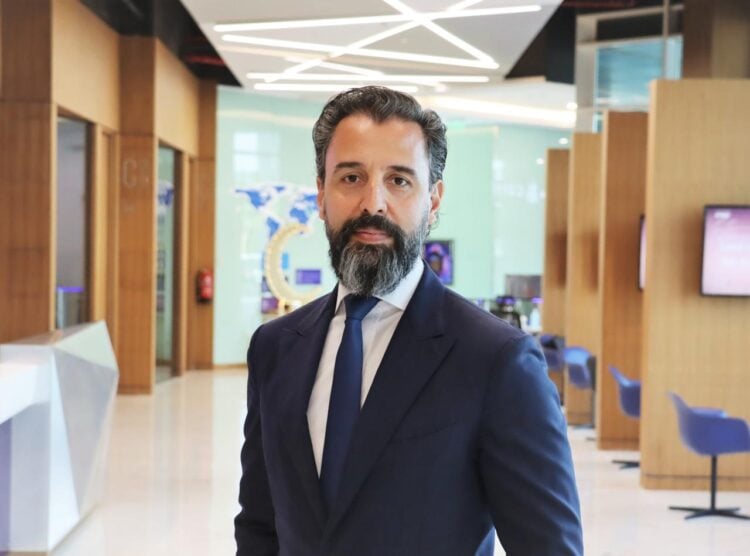Publisher: Maaal International Media Company
License: 465734
AI drives major gains in customer experience in Saudi Arabia, according to new KPMG study
اقرأ المزيد
KPMG has released its latest Customer Experience Excellence Report – Saudi Arabia 2024–2025, unveiling how artificial intelligence is fundamentally transforming customer expectations and service delivery across the Kingdom. Based on responses from more than 1,500 Saudi consumers evaluating 96 leading brands across ten sectors, the report highlights a clear shift towards data-driven, personalized customer journeys and the growing importance of trust, speed, and empathy in consumer interactions.
Now in its third Saudi edition and fifteenth year globally, the CEE report arrives at a time when the Kingdom’s Vision 2030 is accelerating digital and service transformation across all sectors. The findings show that businesses which have embraced AI to reimagine their customer experiences are seeing measurable gains in loyalty, satisfaction, and advocacy. Leading the sector rankings is Financial Services, which not only topped the list in 2024 with a score of 8.30, but also showed one of the largest year-on-year improvements, up from 7.94 in 2022. Non-Grocery Retail follows with a score of 8.16, improving from 8.05 previously, benefitting from streamlined shopping experiences and tailored promotions. Restaurants and Fast Food come in third with a score of 8.09, climbing from fifth place in 2022, driven by successful investments in digital ordering, delivery, and service efficiency.
“Customer experience is the new battleground for competitive advantage. As Saudi Arabia continues its rapid transformation, organizations that integrate AI with empathy, integrity, and purpose will lead the way,” said Adib Kilzie, Head of Customer Experience and Alliances at KPMG in Saudi Arabia. “This year’s report shows that success in customer experience is no longer about simply responding to needs—it’s about anticipating them, personalizing the journey, and delivering with speed, transparency, and care.”
The Automotive sector, newly included in this year’s report, makes a strong debut with a score of 7.98. The industry’s focus on personalization through virtual showrooms, online consultations, and AI-driven service touchpoints has positioned it as a sector to watch. Utilities, which moved from 7.82 in 2022 to 7.96 in 2024, reflect growing digital maturity and efforts to improve customer convenience. In contrast, Logistics and Entertainment & Leisure remain at the lower end of the rankings, scoring 7.71 and 7.80 respectively—both down slightly from 2022—highlighting persistent challenges in addressing personalization, empathy, and resolution, which are increasingly vital in today’s experience economy.
Across all industries, the KPMG Six Pillars methodology—Personalization, Integrity, Time and Effort, Expectations, Resolution, and Empathy—remains at the heart of excellent customer experience. This year’s research found that Integrity and Expectations are the strongest drivers of both loyalty and advocacy in the Saudi market, underscoring the importance of delivering on promises, building trust, and aligning values between brand and customer. Notably, Resolution saw the highest average increase across sectors compared to 2022, indicating growing attention to solving problems quickly and proactively. Customers are increasingly influenced by how companies communicate and act on their purpose, especially in a post-pandemic, digitally empowered landscape.
The report also explores shifting generational attitudes towards artificial intelligence. Younger consumers, particularly those aged 18 to 24, express concern over AI displacing jobs and its impact on long-term career opportunities. Older consumers, meanwhile, tend to prefer the personal touch of human interaction and are more skeptical of data privacy in AI-led systems. These findings highlight the need for organizations to strike a balance between automation and human connection, particularly in service settings that involve sensitive or complex issues.
A growing emphasis on sustainability is also shaping purchasing decisions. Thirty-eight percent of Saudi consumers report being exceedingly willing to pay more for ethically and sustainably sourced goods, with younger age groups leading the trend. At the same time, the rising cost of living is influencing consumer behavior, with 62 percent of respondents feeling significant financial pressure and adjusting their purchasing habits accordingly.
Looking ahead, the report outlines how next-generation AI systems and AI agents are expected to revolutionize customer engagement. With advances in natural language processing, explainable AI, and predictive analytics, businesses will soon be able to offer even more seamless, intuitive, and emotionally aware experiences. However, KPMG cautions that AI adoption must be strategic, ethical, and designed around real human needs. Mapping customer journeys, understanding value streams, and applying AI where it can deliver the most tangible benefit will be critical to success.
Global case studies featured in the report—from Emirates Airlines to Hilton Hotels, from Mayo Clinic to FWD Insurance—demonstrate how AI is already driving improvements in customer service, operational efficiency, and personalization across diverse industries. In Saudi Arabia, organizations are encouraged to learn from these examples while developing their own strategies that reflect local market dynamics and evolving consumer expectations.










